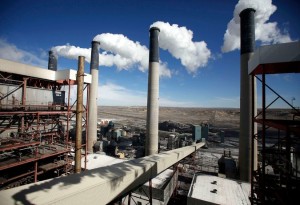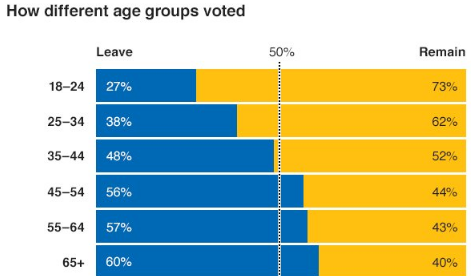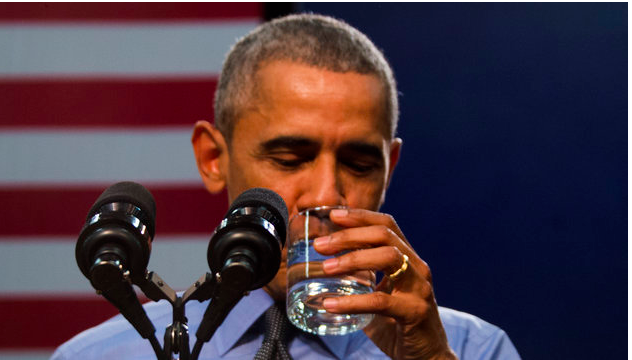 WASHINGTON — In a major setback for President Obama’s climate change agenda, the Supreme Court on Tuesday temporarily blocked the administration’s effort to combat global warming by regulating emissions from coal-fired power plants.
WASHINGTON — In a major setback for President Obama’s climate change agenda, the Supreme Court on Tuesday temporarily blocked the administration’s effort to combat global warming by regulating emissions from coal-fired power plants.
The brief order was not the last word on the case, which is most likely to return to the Supreme Court after an appeals court considers an expedited challenge from 29 states and dozens of corporations and industry groups.
But the Supreme Court’s willingness to issue a stay while the case proceeds was an early hint that the program could face a skeptical reception from the justices.
The 5-to-4 vote, with the court’s four liberal members dissenting, was unprecedented — the Supreme Court had never before granted a request to halt a regulation before review by a federal appeals court.
“It’s a stunning development,” Jody Freeman, a Harvard law professor and former environmental legal counsel to the Obama administration, said in an email. She added that “the order certainly indicates a high degree of initial judicial skepticism from five justices on the court,” and that the ruling would raise serious questions from nations that signed on to the landmark Paris climate change pact in December.
The White House said in a statement that it disagreed with the court’s decision and remained confident that it would ultimately prevail. “The administration will continue to take aggressive steps to make forward progress to reduce carbon emissions,” it said.
Opponents of Mr. Obama’s climate policy called the court’s action historic.
“We are thrilled that the Supreme Court realized the rule’s immediate impact and froze its implementation, protecting workers and saving countless dollars as our fight against its legality continues,” said Patrick Morrisey, the attorney general of West Virginia, which has led the 29-state legal challenge.
“There’s a lot of people who are celebrating,” said Jeff Holmstead, a lawyer with Bracewell & Giuliani, a firm representing energy companies, which are party to the lawsuit. “It sends a pretty strong signal that ultimately it’s pretty likely to be invalidated.”
The challenged regulation, which was issued last summer by the Environmental Protection Agency, requires states to make major cuts to greenhouse gas pollution created by electric power plants, the nation’s largest source of such emissions. The plan could transform the nation’s electricity system, cutting emissions from existing power plants by a third by 2030, from a 2005 baseline, by closing hundreds of heavily polluting coal-fired plants and increasing production of wind and solar power.
“Climate change is the most significant environmental challenge of our day, and it is already affecting national public health, welfare and the environment,” Solicitor General Donald B. Verrilli Jr. wrote in a brief urging the Supreme Court to reject a request for a stay while the case moves forward.
The regulation calls for states to submit compliance plans by September, though they may seek a two-year extension. The first deadline for power plants to reduce their emissions is in 2022, with full compliance not required until 2030.
The states challenging the regulation, led mostly by Republicans and many with economies that rely on coal mining or coal-fired power, sued to stop what they called “the most far-reaching and burdensome rule the E.P.A. has ever forced onto the states.”
A three-judge panel of the United States Court of Appeals for the District of Columbia Circuit in January unanimously refused to grant a stay.
The court did expedite the case and will hear arguments on June 2, which is fast by the standards of complex litigation.
The states urged the Supreme Court to take immediate action to block what they called a “power grab” under which “the federal environmental regulator seeks to reorganize the energy grids in nearly every state in the nation.” Though the first emission reduction obligations do not take effect until 2022, the states said they had already started to spend money and shift resources.
Read this entire article in the New York Times
This article was originally published in the New York Times written by






Leave a Reply